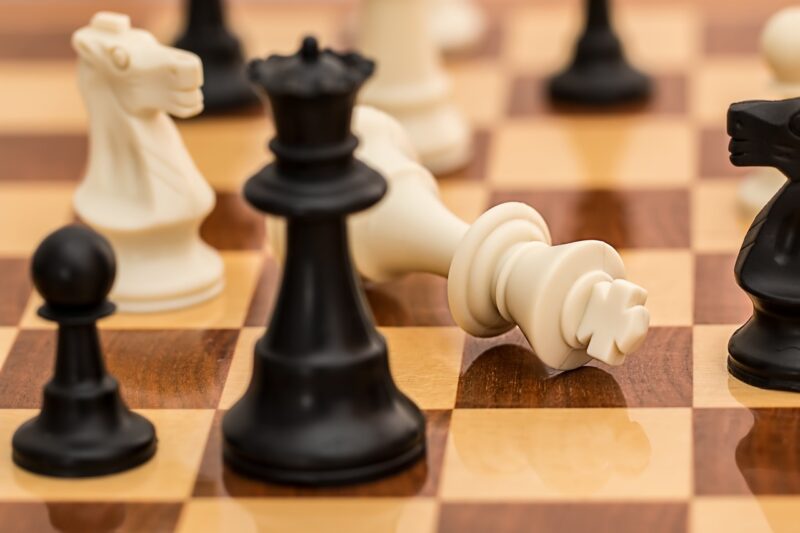The Fascinating Evolution of Chess and Its Role in Strategy
November 17, 2024

Chess is more than just a game; it is a timeless symbol of strategy, intellect, and cultural evolution. The game has endured across various epochs and societies, continually adapting while maintaining the core principles that have made it captivating for centuries. This article delves into the rich history of chess, its evolution over the years, and its significance in the realm of strategy.
1. The Origins of Chess
The precise origins of chess remain shrouded in mystery, but historians trace its ancestors to an ancient Indian game called Chaturanga, which dates back to around the 6th century AD. Chaturanga was a strategic board game that featured pieces representing different military units—infantry, cavalry, elephants, and chariots. This association with strategy would become a hallmark of chess.
From India, chess spread to Persia, where it evolved into Shāh Māt, meaning “the king is helpless.” The game further disseminated through the Arab world and reached Europe by the 9th century, where it underwent significant changes, eventually becoming the chess we recognize today.
2. Chess in Europe: From Medieval Times to the Renaissance
In medieval Europe, chess gained popularity among nobility, symbolizing power and intellectual prowess. The pieces began to morph to reflect European culture, and by the late 15th century, modern chess rules began to take shape. The queen became the most powerful piece on the board, showcasing a shift in societal attitudes toward women and their roles.
This period also saw the introduction of various strategic concepts such as castling and the pawn’s ability to promote, which would later become standard rules. The game increasingly reflected complex strategies and became a metaphor for warfare, where each side’s pieces represented an army.
The invention of the printing press in the 15th century facilitated the publication of chess manuals, enabling widespread access to strategies and opening theories. Prominent players like Philidor and Ruy Lopez emerged, further shaping the strategic foundations of chess.
3. The Birth of Competitive Chess
The 19th century heralded a new era for chess as it transitioned from casual play to organized competition. The first modern chess tournament took place in London in 1851, won by Adolf Anderssen, highlighting the growing interest in competitive play.
During this time, chess notations were standardized, allowing for the study of famous games and strategies. Chess became an intellectual sport, attracting players who studied openings, endgames, and tactics with a scientific approach. The emergence of chess clubs and societies fostered a sense of community, encouraging players to share knowledge and experience.
As the century progressed, key figures like Wilhelm Steinitz and Emanuel Lasker contributed to the evolution of chess realization through their theories on positional play, fundamentally changing how players approached the game.
4. Chess and the Rise of Technology
The 20th century introduced significant technological advancements that transformed chess. The arrival of computers made vast databases of games accessible and allowed players to analyze positions in ways previously unimaginable. The development of chess engines like Stockfish accelerated understanding of near-optimal play by calculating countless possibilities at lightning speed.
Additionally, the advent of online platforms like Chess.com and Lichess has revolutionized how players engage with the game. These platforms offer tools for training, analysis, and online tournaments, making chess accessible to a global audience.
Moreover, the evolution of computer chess culminated in notable events such as IBM’s Deep Blue defeating the reigning world champion, Garry Kasparov, in 1997. This pivotal moment reshaped perceptions of computers in strategic games and provided insights into human and artificial intelligence.
5. The Role of Chess in Strategic Thinking
Chess is widely recognized as a productive exercise for cultivating critical thinking and strategic planning skills. The game’s framework requires players to anticipate their opponent’s moves, analyze positions, and devise long-term strategies, mirroring real-world decision-making processes.
Many educators and psychologists advocate using chess as a teaching tool. Children who learn to play chess often demonstrate improved academic performance, particularly in mathematics and problem-solving areas. Likewise, chess promotes patience, resilience, and the ability to learn from mistakes—vital life lessons in any endeavor.
Moreover, chess has found applications in business and military strategy, where its principles inform decision-making frameworks and tactical planning. Concepts such as positioning, control, and risk assessment resonate with leaders in various industries, attesting to chess’s relevance beyond the board.
6. The Future of Chess
As we move into the future, chess continues to evolve. The introduction of artificial intelligence (AI) poses exciting and challenging prospects for the game. Advanced AI programs are now capable of learning and innovating unique strategic approaches, creating new opportunities to test human players.
Moreover, the phenomenon of streaming chess matches, popularized by platforms like Twitch, has given the game an unprecedented online visibility boost. Renowned players, such as Hikaru Nakamura, have drawn large audiences, blending gaming, entertainment, and education in engaging formats.
Additionally, the rise of rapid and blitz chess formats has revolutionized traditional long-play matches, bringing excitement and broader appeal to younger generations. The balance of preserving classical strategies while embracing contemporary dynamics will define chess’s evolution in the coming years.
Conclusion
The evolution of chess is a testament to its enduring power as a game of strategy and intellect. From its ancient roots in India to its current status as a global phenomenon, chess embodies a unique blend of culture, competition, and cognitive challenge. As technology continues to shape its landscape, chess remains a rich field for exploration, teaching, and strategic prowess, transcending the mere confines of a board game.
By understanding its past, engaging with its present, and anticipating its future, we can appreciate why chess will always hold a special place in the hearts and minds of players around the world.








